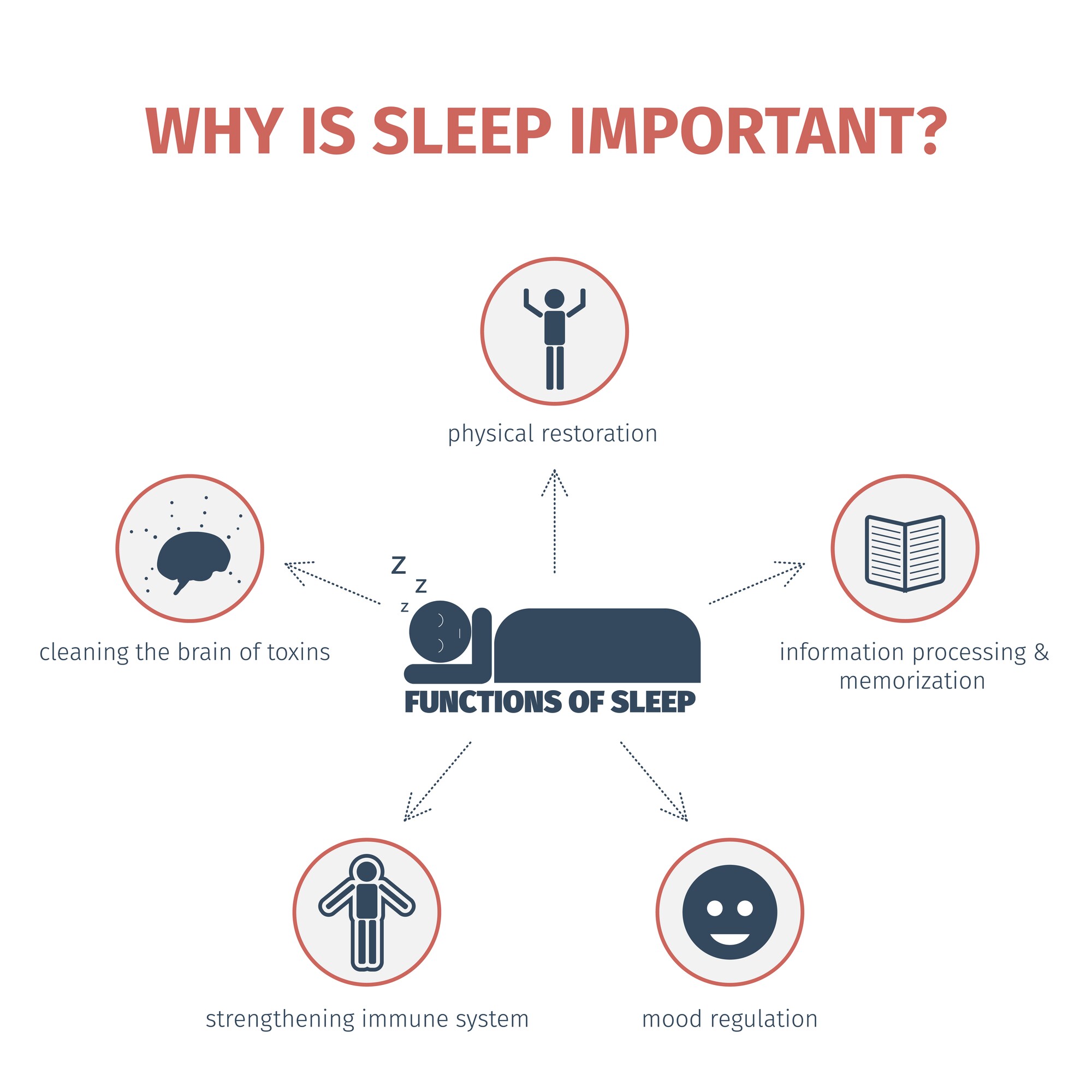Sleep and Your Health
You probably know firsthand that sleep can affect your mood. After a sleepless night, you may be more irritable, short tempered, and feel more stress. According to the Director of Sleep Health Centers there is a big relationship between psychiatric and psychological problems and lack of sleep. Studies have shown that, sleep problems may increase an individual’s risk of developing a mood disorder such as depression or anxiety.
According to the Centers for Disease Control and Prevention (CDC) getting good sleep is not just important for your energy levels, it’s critical for your heart health too. Sleep affects almost every tissue in our bodies including growth and stress hormones, our immune system, appetite, breathing, blood pressure and cardiovascular health. Adults who don’t get enough sleep are more likely to have health problem including heart attack, asthma, high blood pressure, type 2 diabetes, and obesity.
How much sleep do you need? Most adults need seven to nine hours of sleep each night.
What are the health benefits of a good sleep?
- Brain processing – Sleep helps lock memories into your brain and when you are sleep deprived, you’re less likely to remember what you learned while you were awake. Sleep also helps your brain regulate emotions.
- Tissue repair – While you sleep, your body is hard at work repairing itself by releasing proteins and hormones that help restore damaged tissues, including muscles. If you’re sleep-deprived, your body heals more slowly.
- Immune system function – Sleep helps boost your body’s ability to fight illness. During slumber, the body produces cytokines which are proteins that direct immune cells to fight inflammation throughout the body.
What can you do to get better sleep? Set yourself up for success by adopting good sleep habits.
- Stick to a regular sleep schedule by going to bed at the same time each night and get up at the same time each morning, including weekends.
- Get enough natural light during the day.
- Get enough physical activity during the day and try not to exercise within a few hours before bedtime.
- Avoid caffeine, alcohol, nicotine, and other chemicals that interfere with sleep.
- Keep your bedroom dark, cool, and quiet.
- Put your cell phone and other electronics down several hours before bedtime because the blue light emitted by the screen restrains the production of melatonin.
Some takeaways for you to consider: It can be tempting to trade sleep for a few precious hours of wakefulness, but it is important to consider the hidden costs because your sleep is precious too. Lack of sleep over time has been associated with a shortened lifespan. It may take some time to learn the skills for a good night’s sleep, but it will pay dividends over your lifetime.
Reneé Hudson, Loss Prevention Consultant, PRM
